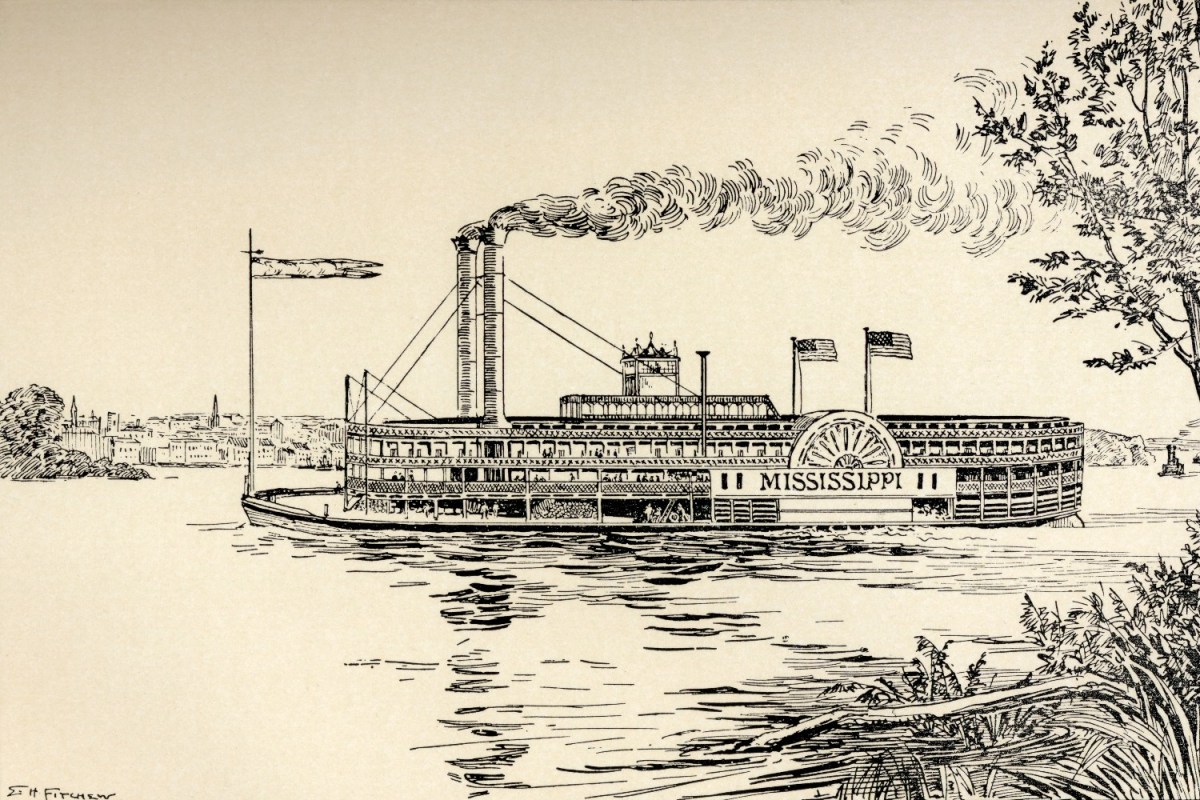First and foremost, no — the headline above does not feature a typo in lieu of the phrase “speedboat racing.” There was, in fact, a moment over a century ago where audiences across the United States gathered by large bodies of water to watch the extreme sport of the day — steamboat racing. Although it might be incorrect to make an extreme sports comparison; steamboat racing often proved fatal for some or all of the participants.
A new article by Greg Daugherty at Smithsonian Magazine chronicles this surreal period of 19th century history. Daugherty points out the unsettling blend of danger and technological emergence at work with steamboats during that era. He points to the 1,800 people who died between 1816 and 1848 when steamships’ boilers exploded — something that doesn’t seem to have slowed the advancement of this mode of transportation.
And people kept racing them, which attracted substantial audiences, including — as Daughterty notes — Mark Twain, who wrote approvingly of the experience. The article cites an 1852 fire on board the Henry Clay in which 80 people died. Looking into the archive of the New York Times, you can read a letter to the editor including the testimonial of someone who was on board the vessel during the fire, including the detail that “one of the beams which supported the main deck and crossed directly over the furnace room, was quite charred and smoking.”
New Remains of 200-Year-Old Steamboat Found in Lake Champlain
The history of the Phoenix is now more clearSteamboat races continue today, but they sound a lot safer — something that’s also the case for other forms of racing involving mechanical vehicles. Given the occasionally harrowing history of steamboats competing against one another, this is probably for the best.
Thanks for reading InsideHook. Sign up for our daily newsletter and be in the know.


















